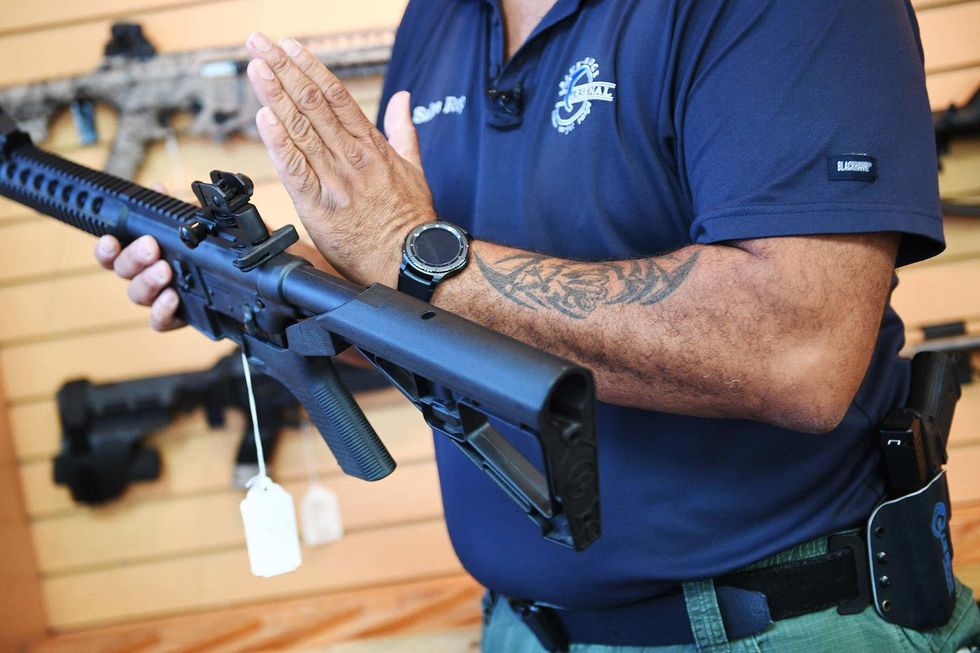
A salesman shows a bump stock installed on an AR-15 rifle on Oct. 6 at Blue Ridge Arsenal in Chantilly, Virgina. A federal judge dismissed a lawsuit challenging the constitutionality of Massachusetts' assault weapons ban, ruling that the weapons don't fall within the scope of the Second Amendment. (Jim Watson/AFP/Getty Images)



